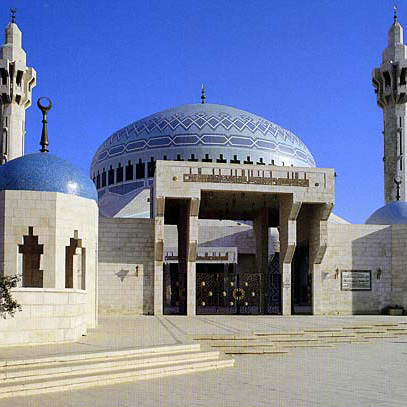Foreign assistance for 2011 to reach $2.8b – Hassan
By Omar Obeidat
AMMAN – Foreign economic assistance to Jordan for 2011 is expected to reach $2.8 billion, according to Minister of Planning and International Cooperation Jafar Hassan.
He explained that foreign assistance directed to the Kingdom this year comes in several forms: Cash grants to support the budget directly, grants earmarked to support development projects, loan guarantees to the private sector and long-term, low-interest concessional loans.
Hassan told The Jordan Times in an interview on Monday that budget support grants to help the treasury finance several areas of government expenditures are set to reach $1.7 billion, including $1.4 billion from Saudi Arabia received earlier this year by the Ministry of Finance, in addition to $300 million expected from the US and EU.
Around $400 million of Jordan’s aid for 2011 is in the form of earmarked grants for development projects, which will finance projects in a variety of sectors including water, education and business development.
These funds, Hassan stressed, are tied to specific projects and cannot be spent on anything else.
“Today the donor community is also increasingly interested in channelling support directly to the private sector to enhance growth prospects,” he said, adding that in light of this trend, the US, through its Overseas Private Investment Corporation (OPIC), as well as other donors including the EU have designed assistance programmes that provide loan guarantees to small- and medium-sized enterprises (SMEs).
This assistance, which will be channelled through the government’s SME programme and implemented through the Jordan Enterprise Development Corporation in partnership with banks, is expected to reach a total value of about $450 million this year, mostly in loan guarantees but also including a considerable quantity in grants, he said.
“Donors are providing these loan guarantees at their own expense without the requirement of any sovereign guarantee from the government,” Hassan remarked, elaborating that this form of assistance enables SMEs to borrow at better terms from banks and enables these businesses, which he called the backbone of job creation, to utilise existing liquidity in financial institutions.
Another part of Jordan’s assistance package is development loans or concessional lending, with long repayment terms and low interest rates, the minister said in the interview.
Over the past two years, the Kingdom had to lower its levels of development borrowing in order not to exceed the legal limit restricting public debt to no more than 60 per cent of gross domestic product, as these loans require sovereign guarantees from the government, he explained.
According to Hassan, the value of development loans declined significantly over the past two years to reach a record low of less than $50 million for 2011.
Budget support loans – another type of concessional loan – are particularly important for Jordan this year, the minister said, as they allow the government to finance critical needs at lower costs than borrowing from international or local commercial banks.
Hassan said Jordan is in the process of finalising negotiations with the World Bank for a $250 million Development Policy Loan (DPL), adding that the ministry is also in discussions with France and Japan on additional DPL support for the budget.
“These soft loans will prevent the government from crowding out the private sector seeking funding at home.”
Assistance in tough times
Indicating that Jordan is facing exceptional regional and international circumstances on both the economic and political levels, Hassan said: “We have to be realistic in our assessment that these conditions will stay with us over the next two or three years in one form or another, but there is also much reason for optimism and we stand to benefit from several opportunities to expand economic growth.”
“Jordan is a country that has a strong human resource base and the conditions of stability that are fundamental for success,” he highlighted.
As the government advances its economic programmes, focusing on competitiveness and productivity enhancement, and as the investment environment and incentives for the private sector are improved, the minister pointed out that Jordan stands to benefit from various economic opportunities in the region and internationally.
“We are not planning to remain forever dependent on the generosity of our friends and partners,” Hassan noted, adding that the precise purpose of the programmes Jordan is pushing forward today with donor support is to enable the Kingdom to overcome its binding constraints in water and energy and further strengthen its education and business reforms, in order to ensure sustainable economic growth in the future and to move the country into a higher income level.
The Kingdom’s economic predicament has regional ramifications, he said, noting that Jordan has taken on responsibilities far beyond its size or resources in helping to build and maintain regional stability.
“Therefore, we do count on sustained and enhanced international support for Jordan during this very critical period, when the Kingdom is showing the will and determination to be a model of reform for its people and for the region,” Hassan said, emphasising that Jordan’s success is a success for the region and that investment in Jordan’s prosperity and stability will have a clear impact beyond its borders.
News
23.08.2021
Meeting with King Abdullah II of Jordan
12.06.2019
Cooperation Agreement Signed in Hashemite Kingdom of Jordan
Russian-Arabic Business Council
Всех заинтересованных в установлении и развитии сотрудничества с деловыми кругами стран Арабского Востока приглашаем обратиться в Российско-Арабский Деловой Совет по адресу:
109012 г. Москва, ул.Ильинка, 5/2
тел./факс + 7 (495) 929-02-55
тел. + 7 (495) 929-03-13/15/16
эл.почта: rads@tpprf.ru
сайт: www.rusarabbc.ru







